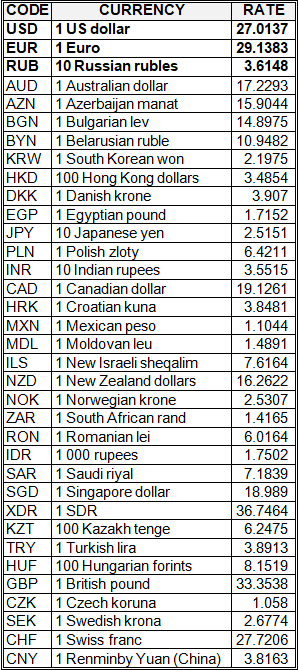
Nova Poshta International (NPI), a member of the Nova Poshta group of companies, has changed its name to Nova Poshta Global (NPG), according to the company.
“Such changes have occurred so that the name conveys a deeper meaning of the entire activity and strategy of Nova Poshta Global, the worldview of its employees … We help businesses, manufacturers and entrepreneurs. We work with more than 200 countries around the world, breaking down borders between people, creating strong relations and cooperation. And this is a global meaning,” Yuriy Benevytsky, the director of Nova Poshta Global, said.
According to the company, the word “international” in the previous name created borders and restrictions, and the word “global” symbolically erases them.
“We want to emphasize that the whole world for Ukrainians, those who use the Internet, is accessible and simple. Especially now that the borders for movement are closed,” the company noted.
As reported, in 2019 Nova Poshta International delivered 3.4 million international parcels, which is 26% more than in 2018.
Nova Poshta Global (formerly Nova Poshta International) has been providing international express delivery services since 2015, and is part of the Nova Poshta group of companies. Nova Poshta Global is developing the NP Shopping service – the delivery from online stores in the United States, China, Britain and Poland, provides import and export services for businesses and the ability to ship from any Nova Poshta branch to most countries of the world.

Azur Air Ukraine has begun preparations for carrying out cargo transportation on board long-haul Boeing 767-300 aircraft, the airline said on its Facebook page.
“Given the quarantine imposed by the Cabinet of Ministers and the closure of border crossing points, the airline’s flights were carried out only as part of evacuation measures to return Ukrainian citizens home. Thus, the company incurs significant losses … In this regard, the airline is looking for ways to realize its potential outside of passenger transportation,” the report says.
Azur Air Ukraine notes that organizational and technical measures are being implemented to partially change the configuration of passenger aircraft to cargo, in particular, the dismantling of passenger seats, etc.
Such measures, according to the company, should ensure the carrying capacity of Boeing 767-300 passenger aircraft and transportation of medical equipment and drugs, essential goods, etc. as part of humanitarian flights.
“The implementation of these measures by the airline’s management will minimize the negative impact of the economic crisis in the state, tax revenues to the state budget, improve the anti-epidemic situation and avoid the mass dismissal of the airline’s workforce,” Azur Air Ukraine expects.
Azur Air Ukraine (formerly Utair Ukraine) began its operations in 2009, changing its name in 2015. The company is based at Boryspil International Airport (Kyiv region), however, it offers flights from the regions, including Kharkiv, Zaporizhia, Lviv, and Odesa.

The production seed complex of the international agricultural company Corteva Agriscience, which is located in the village of Stasi (Poltava region), has carried out the first export of seeds directly to Agrodairy, one of the largest agricultural companies in Azerbaijan.
According to a company press release, exporting finished products directly to a foreign producer is the first experience and, in the future, a new direction for the seed complex in Ukraine, which since its founding in 2013 has been focused on meeting the local needs of Ukrainian producers and the internal needs of the company.
“Until that time, seeds were exported internally to Corteva Agriscience European production sites, mainly to Romania and Italy, for further processing, packaging and sales by local teams,” the company explained.
Corteva plans to expand exports from Ukraine to other countries. In the future, the company also plans to export seeds to Kazakhstan, Uzbekistan and Kyrgyzstan, and after introducing Ukraine in the list of countries from which it is allowed to import seeds to the European Union, to supply seeds to Europe.
Corteva Agriscience is a global agricultural company that offers farmers comprehensive solutions to maximize yields. The company has more than 150 research facilities and more than 65 active substances in the portfolio.
Corteva Agriscience in 2019 completed the separation from DowDuPont. Corteva Agriscience has been listed on the New York Stock Exchange since June 2019 under the symbol CTVA.

JSC Ukrzaliznytsia is interested in deepening its local content policy and plans to revise its investment program to support Ukrainian manufacturers.
The press service of Ukrzaliznytsia said that such plans were disclosed by member of the company’s board Frantisek Bures.
According to him, the company intends to reduce excess costs and non-core assets for this purpose. “This will free the required sources of funding and turn blocked assets into liquid ones. At the same time, the company’s investment program will be maximally refocused on cooperation with internal producers. Thus, the Ukrainian economy will receive not only the benefits of reliable logistics services provided by Ukrzaliznytsia, but also additional support,” the press service said in the statement, citing Bures.
Ukrzaliznytsia expressed the hope that as a result, the share of production of new locomotives, spare parts, key components, repair services and modernization projects on the basis of Ukrainian enterprises will increase. Deepening the level of the local content policy for investments will support the Ukrainian economy through employment growth, technological development and the introduction of innovative know-how.
Bures said that at present, the company makes extensive use of industrial products from internal manufacturers, in particular, welding structures, transformers, electric motors and equipment, gear structures and systems, axial pins and wheel sets, construction equipment, power electronics, control systems and radio engineering, traffic safety systems, airborne alarm and security systems, light and sound systems, fire protection systems, sensors, video and communication systems, cables and conditioning systems, accumulators and batteries, installation and commissioning works. The company also uses the testing and certification, warranty and after-sales services, and other services.
“Based on my long experience working with international and domestic manufacturers of rolling stock, I am absolutely convinced that Ukrainian manufacturers are able to meet the highest quality requirements,” he said.
Bures also said that in order to fulfill the order of President of Ukraine Volodymyr Zelensky regarding the promotion of investment and strengthening the protection of foreign investment in the country, the industry needs to get government’s strong support and clear rules of the game on the market. “It is necessary to adopt the national local content strategy for large national investment projects with transparent rules, calculations and a monitoring methodology. This will involve more foreign partners in investing in Ukraine, contributing to the creation of new jobs and the development of the national economy,” he said.
National bank of Ukraine’s official rates as of 24/04/20

Source: National Bank of Ukraine